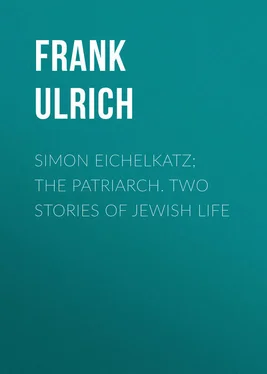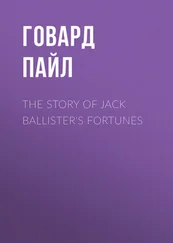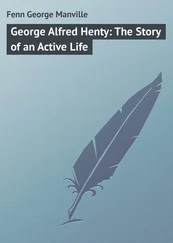Ulrich Frank - Simon Eichelkatz; The Patriarch. Two Stories of Jewish Life
Здесь есть возможность читать онлайн «Ulrich Frank - Simon Eichelkatz; The Patriarch. Two Stories of Jewish Life» — ознакомительный отрывок электронной книги совершенно бесплатно, а после прочтения отрывка купить полную версию. В некоторых случаях можно слушать аудио, скачать через торрент в формате fb2 и присутствует краткое содержание. Жанр: foreign_antique, foreign_prose, на английском языке. Описание произведения, (предисловие) а так же отзывы посетителей доступны на портале библиотеки ЛибКат.
- Название:Simon Eichelkatz; The Patriarch. Two Stories of Jewish Life
- Автор:
- Жанр:
- Год:неизвестен
- ISBN:нет данных
- Рейтинг книги:4 / 5. Голосов: 1
-
Избранное:Добавить в избранное
- Отзывы:
-
Ваша оценка:
- 80
- 1
- 2
- 3
- 4
- 5
Simon Eichelkatz; The Patriarch. Two Stories of Jewish Life: краткое содержание, описание и аннотация
Предлагаем к чтению аннотацию, описание, краткое содержание или предисловие (зависит от того, что написал сам автор книги «Simon Eichelkatz; The Patriarch. Two Stories of Jewish Life»). Если вы не нашли необходимую информацию о книге — напишите в комментариях, мы постараемся отыскать её.
Simon Eichelkatz; The Patriarch. Two Stories of Jewish Life — читать онлайн ознакомительный отрывок
Ниже представлен текст книги, разбитый по страницам. Система сохранения места последней прочитанной страницы, позволяет с удобством читать онлайн бесплатно книгу «Simon Eichelkatz; The Patriarch. Two Stories of Jewish Life», без необходимости каждый раз заново искать на чём Вы остановились. Поставьте закладку, и сможете в любой момент перейти на страницу, на которой закончили чтение.
Интервал:
Закладка:
Eichner! Professor Friedrich Eichner, the most powerful of modern thinkers, the philosopher of world-wide renown, a son of Simon Eichelkatz!
September 22.I see the New Synagogue now every day. It was dedicated over forty years ago, but it is still called "New." They had a rabbi come from Berlin to dedicate it, and that after their own rabbi had worked for ten long years to make the building possible, after he had gone to great pains to scrape the money together, after his ardent appeals had succeeded in warming his people up to the undertaking, after he had removed all the difficulties presented by the authorities – after he had brought things so far, his congregation found it in their hearts to humiliate him at the crowning point of his achievement, they found it in their hearts to set him aside at the dedication in favor of another.
Have honor and justice come back to you? Have the years left their traces upon you, O ye, whom I love, my brethren in faith? Forty years! New generations have blossomed since those days when pride and false ambition brought sorrow to a noble spirit, and sought to deprive him of the fruits of his labor, blessed and pleasing to the Lord. Another was permitted to take his place and consecrate the work he had called into being. On the day of his greatest glory they poured gall into his soul, filled his heart with bitterness. But he forgave!
Gradually I am learning all sorts of stories about the congregation. Simon Eichelkatz tells them to me when I visit him, and that happens almost daily. It is now one of my favorite recreations to hunt up this old man, this wise old man; for what he says in that easy, simple way of his always awakens new thoughts in me. He little suspects the abundance, the wealth of ideas that arise and take form in his mind. They all well forth so unconsciously, the most profound and the most exalted. One day a granite rock of Kantian philosophy towers up before me; the next day the trumpet tones of a Nietzsche reveille sound in my ears. And this feeble old man, who gives utterance to these deep thoughts, never read any other book than the book of life, life in a small town remote from the bustle of the world, life in a Jewish community, with its intellectual backwardness and provincial peculiarities. The Khille , it is true, with its concentric circles, its conservatism, its solidarity, its self-sufficiency, was rich soil to foster individuality and develop reserve strength. Nothing is wasted there, nothing consumed too quickly in those communities thrown back upon themselves, leading, forced to lead, a life apart from the rest of the world. How much that is of import to the world has gone forth from such communities! When the seed had grown strong and healthy in its native soil, and was then transplanted to fresh soil, how it blossomed forth, fruit-bearing, fructifying!
Now it seems to me as though Professor Friedrich Eichner could not possibly have been of other parentage. The son, the heir of Simon Eichelkatz! With amazement, with rapture we listened to his lectures, to which students from all the other departments also crowded; and when the world-philosophies he unfolded loomed before our eyes in gigantic proportions, a feeling came over us of shuddering awe and admiration. Who was this man? A radical, an iconoclast. And now, out of the mouth of an old man, I hear ideas, conceptions, truths that might have laid the foundations for the philosophy of the other, the younger, man. Not that the relation between them was that of teacher and pupil; for Professor Friedrich Eichner knew nothing of his father's wisdom, and the father knew nothing of his son's philosophic systems. The father does not mention his son – he probably is ignorant of his son's life, of his son's importance to science. Only once he referred to him, recently, in telling me about the "New" Synagogue. Sunk in thought he said:
"The first Bar-Mitzvah that took place there was my son's. I still remember the speech our Rav delivered then – about the love of parents and fidelity to those who lead us in our youth – Herr Kreisphysikus, our Rav was a fine, sensible man, but he did not understand just what a child should be. The child should grow away from us, above us, larger, stronger, and higher – and we mustn't ask anything of him, and we mustn't say to him, 'Come and stay here with me, where it is cramped and stuffy for want of air – enough air for an old man, but too little for you. And you shall not be my child, not a child, a filly, that neighs for the stable where its father and mother roll on the straw like animals. You must keep on growing – you must be a man, not a child.'"
Simon Eichelkatz – Friedrich Eichner!
My heart is tender, and I love my dear mother, whom a kindly fate has preserved for me unto this day; and I bless and honor the memory of my dead father. My opinion about filial and parental relations is entirely different from Simon Eichelkatz's; but it seemed to me as though I were listening to a chapter of Nietzsche's Zarathustra. Never did this name sound in your ears, Simon Eichelkatz. You never left the Khille, and for twenty years you have been living alone with your bodyguard, Feiwel Silbermann. But your son has written great works concerning the Zarathustra doctrine.
September 24.The members of the Jewish community here are beginning to look upon me as a queer sort of person. In a measure, it is the duty of a new physician of the Jewish belief to associate with the "gentry" among his co-religionists. That is what is expected of me; and certainly I ought long ago to have left my card at the doors of the Jewish families that are well-to-do, and, as they think, aristocratic and cultivated. On my desk lies a long, imposing list of persons of consequence, and it is my firm intention to pay them my respects; my predecessor urgently recommended me to do so. "You will get into things most quickly," he said, "if you make your way among the well-to-do Jewish families. The community has a reputation from of old for setting great store by culture and refinement; and what better for you in a small out-of-the-way place than a stimulus now and then in the form of a visit to some pleasant home? The evenings are long; you can't forever be playing Skat." I certainly can't, because I know precious little about the game – and so the cultivated Jewish families are my future here. For the present I have found something else, which gives me more than I can expect from the stimulus of would-be æsthetic Jewish wives and maidens.
I dearly love my fellow-Jews. But my love for them must not blind me to their weaknesses, and among their weaknesses I count an assumption of culture, a pseudo-refinement of the intellect, which has taken increasing hold upon the daughters of our race. How often I was disagreeably impressed by them in Berlin when they spoke about anything and everything, with that half-culture which produces the feeling that they are not concerned with knowledge, but with the effect to be created by their apparent "information" upon all subjects. What don't they know! What don't they want to know! How often I was tempted to say to one or another of them: "The learning of many things does not cultivate the mind; learn to believe and to think." And must I repeat the same experience here? I am uneasy; my predecessor sentimentalized too much about the "educated" Jewesses. Some of them, he unluckily told me, had been "finished off" in prominent educational institutions in foreign countries. I know all that, and I'm afraid of it, this finishing-off process of the ladies' seminaries! But probably there will be nothing else for me to do. If the winter evenings here are really so long and dreary, I may not be able to resist the torment of hearing young lips, soft and rosy for kissing, put the question to me: "What do you think of Nietzsche's 'Beyond evil and good,'" or "Do you think the painters of the Quatrocento and the Secessionists have anything in common?" How that hurts! Almost a physical pain! At all events it has often spoilt my taste for kissing soft, rosy lips.
Читать дальшеИнтервал:
Закладка:
Похожие книги на «Simon Eichelkatz; The Patriarch. Two Stories of Jewish Life»
Представляем Вашему вниманию похожие книги на «Simon Eichelkatz; The Patriarch. Two Stories of Jewish Life» списком для выбора. Мы отобрали схожую по названию и смыслу литературу в надежде предоставить читателям больше вариантов отыскать новые, интересные, ещё непрочитанные произведения.
Обсуждение, отзывы о книге «Simon Eichelkatz; The Patriarch. Two Stories of Jewish Life» и просто собственные мнения читателей. Оставьте ваши комментарии, напишите, что Вы думаете о произведении, его смысле или главных героях. Укажите что конкретно понравилось, а что нет, и почему Вы так считаете.












